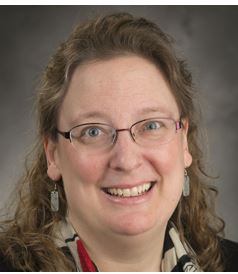U.S. Educators Meeting Online in MSAN Institute to Advance Anti-Racist School Leadership
April 15, 2021 | By Karen Rivedal, WCER Communications

As in past years, a panel of students who are equity leaders in their high schools will highlight the 2021 MSAN Institute.
WCER’s MSAN Consortium is playing virtual host this week to teachers, principals and school district leaders from across the country for the 2021 MSAN Institute, a two-day professional learning conference focused on furthering anti-racist school leadership and teaching practices.
From 12:30-4:15 p.m. CDT on Monday and Tuesday, the program will offer conference attendees breakout sessions, job-alike networking groups and keynote speakers, plus a frank and engaging discussion from a panel of MSAN high school students/equity leaders who will share their views on what adults can do to support students of color.
Now in its 21st year, MSAN is a national coalition of 29 multiracial school districts working together to understand and change school practices and structures that keep racial opportunity gaps in place. As a network of equity-focused districts, MSAN conducts research, shares best practices, analyzes policies and engages in professional development opportunities.
With its national home at UW-Madison, member districts hail mainly from the East Coast, including New Jersey, Massachusetts, Virginia and North Carolina, and the Midwest: Michigan, Illinois, Ohio and Wisconsin. Wisconsin districts include Madison, Middleton-Cross Plains, Sun Prairie, Verona, Stevens Point and Waunakee. MSAN also has three Phoenix-area districts in Arizona. Members normally meet in person for the Institute conference, but it is being held online this year due to the pandemic.

Madeline Hafner, MSAN Executive Director
“The MSAN Institute is a powerful place for learning,” says MSAN Executive Director Madeline Hafner, Ph.D. “Whether in person or online, it’s a really unique space where we harness the expertise of researchers, teachers, administrators and students to support one another in being more anti-racist educators.”
Conference attendees will learn about current research and promising practices from researchers and MSAN districts creating more equitable educational environments for students of color. Across the 18 different sessions being provided, participants will have opportunities to:
- Hear educators describe programs to improve student opportunity and achievement.
- Take part in large and small group discussions with educators doing this work.
- Network with others across the country in the job-alike session.

Keynote speakers, from left, Sharon Radd, Gretchen Generett, Mark Gooden and George Theoharis
Keynote speakers at this year’s conference will be four researchers who recently authored, “Five Practices for Equity-Focused School Leadership.”
Described as a call to action that is both practical and passionate, the book offers five practices to increase educational equity and eliminate marginalization based on race, disability, socioeconomics, language, gender and sexual identity, and religion. The four authors are Gretchen Givens Generett, Ph.D, Duquesne University; Mark Anthony Gooden, Ph.D, Teachers College, Columbia University; Sharon I. Radd, Ed.D, St. Catherine University; and George Theoharis, Ph.D, Syracuse University.
Topics for breakout sessions include grading for equity, teaching Black history through the lens of Black excellence and creating inclusive environments for Black teachers. Other sessions are devoted to culturally responsive problem-solving, barriers to teaching, instructional coaching and creating access for math-resistant learners. Additional sessions explore the role school leadership plays in the suspension and expulsion of Black students, and the issue of high-ability students who are not yet achieving highly.
MSAN is a project of the Wisconsin Center for Education Research in UW-Madison’s School of Education. As a group and by district member, the coalition works to change school practices and structures that keep racial achievement gaps in place by doing research and sharing best practices, policy analysis and professional development offerings.


